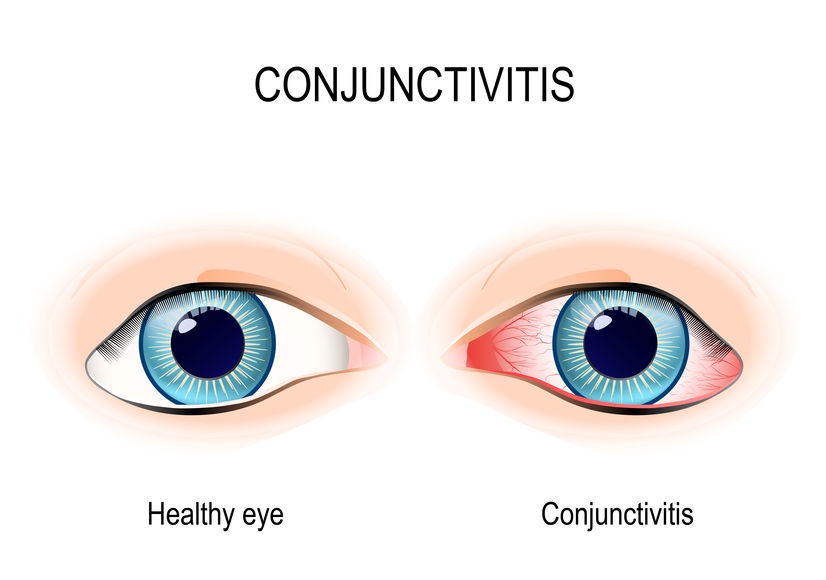Allergic eye disease can cause variety of symptoms and discomfort. The term allergic conjunctivitis is used to denote that the signs and symptoms are due to allergic in etiology and not infective. There are many types of allergic conjunctivitis. They vary in their clinical presentation and certain types are more common than the other.
In general the predominant symptoms of allergy include itching and watering of eyes. It can be sudden in onset as in acute allergic conjunctivitis when something falls into the eye or may be chronic that can persist for months to years.
Conjunctiva is a semi transparent, thin membrane covering the white part of the external eye and it lines the inner aspect of the eye lids as well. In cases of allergic conjunctivitis, this thin layer is inflamed and leads to several symptoms. Contact the eye specialist doctor before it gets severe.
The various symptoms of allergy of the eyes include
1. Itching of the eyes or lid margins
2. Redness of the white part of the eyes
3. Watering or tearing of the eyes
4. Swelling of the eye lids
5. In long standing chronic patients there may be excessive pigmentation
The causes of allergic conjunctivitis include external allergens like pollen, house hold dust mites very often from curtains and bed spreads or pillow covers, close proximity to pet animals, chemical smoke or fumes et cetera. Certain individuals are allergy prone and they have other associated allergic disorders like allergic rhinitis, skin allergies, food allergy , respiratory ailments including wheeze or bronchial asthma.
There are 4 types of allergic conjunctivitis
1.Vernal keratoconjunctivitis
This commonly starts around early teens and produce a variety of clinical signs. The affected children keep rubbing their eyes which should be strongly discouraged as it can lead to corneal complications that can affect the vision
2.Atopic keratoconjunctivitis
This type usually starts in the adults and in severe cases it can lead to visual impairment.Often it is associated with eczema of the skin or asthma.
3. Seasonal allergic conjunctivitis
As the name implies it commonly occurs during a particular season only. Seasonal symptoms are triggered by transitory allergens such as tree or grass pollens. The affected individuals are usually symptom free during the rest of the year
4.Perennial allergic conjunctivitis
This occurs through the year and there is no seasonal variation. It is usually triggered by indoor allergens such as house mites, animal dander, cockroach or rodents
Giant papillary conjunctivitis
It commonly occurs in persons using contact lenses. In this condition the patient will gradually develop worsening of the symptoms as they develop tiny swellings on the inner aspect of the upper lids called papillae. As many patients are unaware of the condition they have, continuous use of contact lenses worsens the condition. In addition to the topical drops, these individuals are advised to stop using contact lenses till the condition completely resolves and contact ophthalmologist for best eye care.
Treatment
- The first line of treatment include avoiding the allergen if known. Allergy prone individuals are advised to avoid pet animals, carpets, fur etc. Regular and more frequent washing of curtains and bed spreads are advised.
- Cold compresses relieves mild symptoms and can be tried before starting medications in mild cases.
- Medical treatment includes topical artificial tear drops which helps to wash away the allergens and also provide comfort
- Topical anti allergic drops like mast cell stabilisers and anti histamines help to a greater extent
- In case of acute allergic reaction or when the symptoms are severe, a short course of steroid drops are helpful.
- Immune modulators like Cyclosporine eye drops or Tacrolimus eye ointment are the newer additions to the treatment of allergic eye disease.
- Systemic immunotherapy is reserved for people who continue to have allergic symptoms that are not relieved with the standard set of medications.


No comments yet